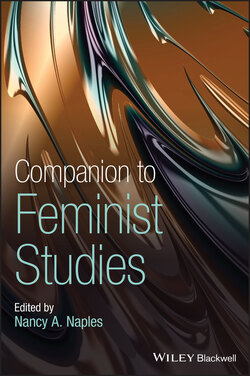Читать книгу Companion to Feminist Studies - Группа авторов - Страница 25
Hormones
ОглавлениеHormones have been a longstanding preoccupation of sex difference theorists. As with other strands of biological determinism, hormones have been resurrected in the twenty‐first century and are now a focus for contemporary brain scientists. Since the discovery of hormones and the fact that hormones act differently in males and females, hormones have been seen as an explanation for observed sex differences and indeed for the particular nature and psychology of women. Fausto‐Sterling was one of the first scientists to offer a resounding critique of theories purporting to show how women were in the grip of their hormones in her book Myths of Gender: Biological Theories about Women and Men, which was first published in 1985 and revised in 1992. She notes that,
some modern psychologists and biologists suggest that women perform more poorly than do men on mathematics test because hormonal sex differences alter male and female brain structures; and many people believe women to be unfit for certain professions because they menstruate. (1992[1985], p. 93)
Fausto‐Sterling examines the literature on the effects of menstruation and menopause on female behavior and finds evidence for significant negative effects resoundingly lacking. She comments on “the morass of poorly done studies on menstruation and menopause” (1992[1985], p. 121) but is heartened by the new research that rejects a traditional misogynistic medical model perspective, which positions women's hormones as toxic and abnormal, and instead situates the experience of menstruation and the menopause in their social contexts (e.g. Beyene 1992). Fausto‐Sterling also examines the evidence for sex differences in aggression. She points out that there is “no clear cut evidence to show that different testosterone levels in adult men and women result in differences in aggression” (1992[1985], p. 141). In fact there is very little evidence for a relationship between circulating hormones such as estrogen and testosterone and any human behavior. Given this reality, researchers often resort to arguments based on the action of fetal androgens on the brain, since the fact that fetal androgens are involved in the establishment of biological sex is incontrovertible. Some neuroscientists and endrocrinologists argue that sex hormones continue to act on the brain throughout life (McEwen and Milner 2017). However, the evidence that fetal hormones shape the human brain for life in a sex‐differentiated manner or that circulating sex hormones have a direct impact on the behavior of adult males and females is weak (Fine 2017).
